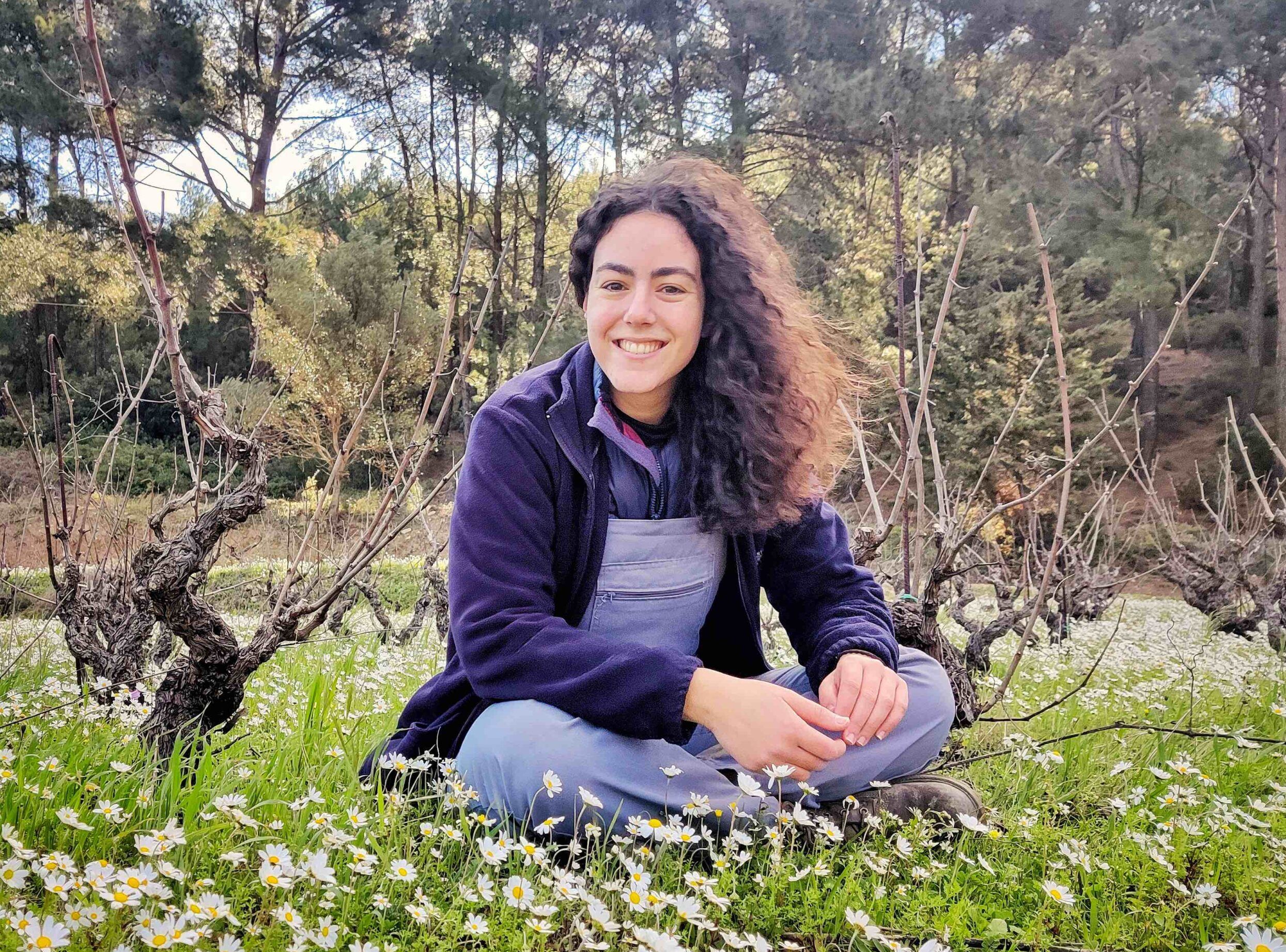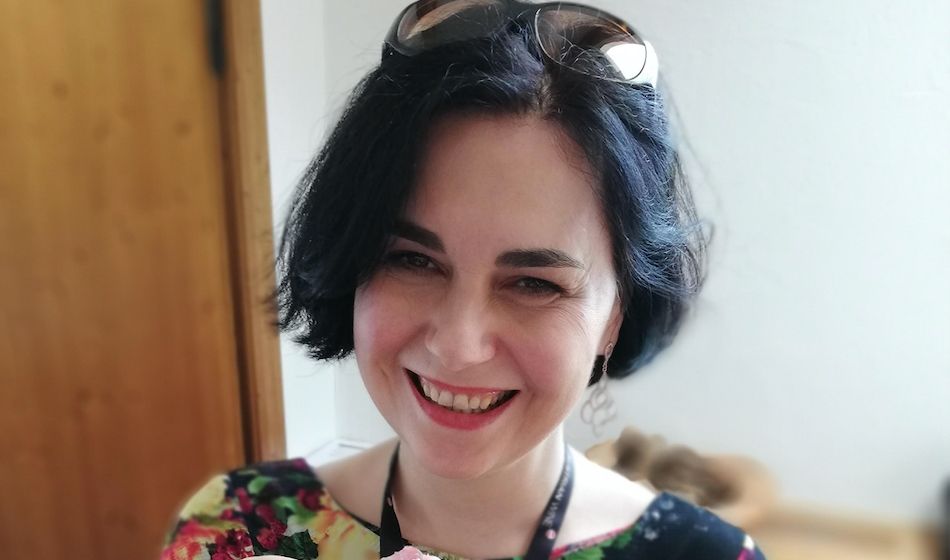Nominations for the E. & J. Gallo and Women of the Vine & Spirit “Women Behind the Wine” Educational Fund Scholarships are now open. Click here for more details on how to enter.
E.& J. Gallo’s Women Behind the Wine Campaign champions and supports the professional development of women in the food and beverage business, focusing on encouraging the advancement and celebrating the achievements of women in the industry; the initiative works across two key areas. As well as the educational scholarships, in partnership with the Women of the Vine & Spirit, it also looks to celebrate the diverse female leadership within its own business and the steps they are taking across E. & J. Gallo and its various brands.
Its link up with Women of the Vine & Spirit helps give women the support they need through a series of educational scholarships, giving them the financial help they need to further their careers with a range of awards, including:
1. Master Sommelier Scholarship ($10,000)
2. Masters of Wine Scholarship ($10,000)
3. Elizabeth Smyth Student Scholarship ($10,000)
4. Fuel Your Dreams Scholarships ($1,000 to $3,000)
Here we talk to Evmorfia Kostaki about her career and what she feels like to have one of the 2021 Master of Wine scholarships.
Tell us about your career to date?
The biggest project of my life until now is the creation of my winery in Samos island, Greece, which is also the place I grew up in. This year will be the first vintage, but until then, I’m primarily a viticulturist, farming three hectares of Muscat Blanc a Petits Grains.
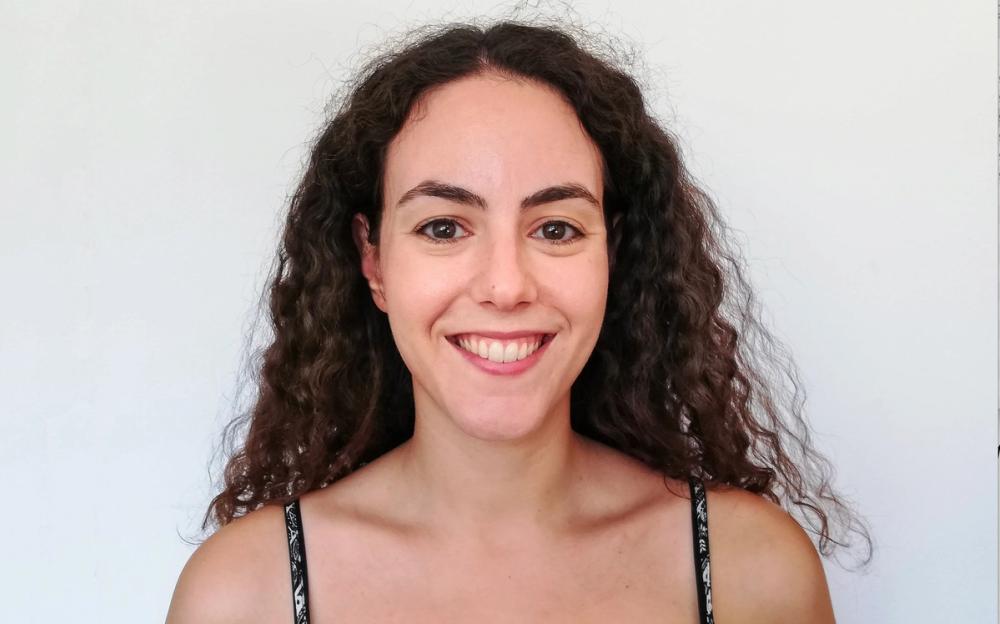
Evmorfia Kostaki is excited to have won a MW Scholarship as part of the E&J Gallo and Women of the Vine & Spirit programme
I’m 26 years old, so I am only in the dawn of my career. Until now, I’ve been focusing on my education, something I continue to work on by attempting to become a Master of Wine, while at the same time getting real life experience in different parts of the world.
I also enjoy writing about wine, both as a freelancer and at different passion projects, like investigating the characteristics of Greek grape varieties. [You can read her blog OenoGreek here.}
Why an how did you get into the wine industry?
I always had my eye on the wine industry. I used to make house wine with my father every summer, and despite starting pressing at 6am with the 100-year-old hand-powered basket press, I didn’t miss a moment. At first I loved the simplicity of what I perceived was wine, but as I learn more I’ve learned to love its complexity much more.
Why did you want to be a winemaker?
I could never imagine myself having an office job. Since I had so fond memories of winemaking I never seriously considered doing anything else. In winemaking, everyday is different, a new challenge. I love vineyards more than wineries however. Be it hot or cold outside, I always find my true self when working in nature.
Where and how did you train?
I truly enjoy learning, so I always tried to advance academically.My bachelor is in chemistry, with a focus in organic chemistry, since I wanted to play it safe and have a more general training in case I changed my mind about wine. As you can see that didn’t happen.
In 2017 I focused in wine with a Masters degree in Viticulture and Enology from the universities in Montpellier and Bordeaux in France and the University of Udine in Italy, called Vinifera Euromaster. I completed the program in 2019, after defending my thesis paper, which I researched in the Oakville Research Station of UC Davis, in Napa.
In 2020 I graduated (unfortunately virtually) as a WSET Diploma holder in wines and spirits and got accepted right away as a student in the Institute of Masters of Wine, where I’m currently a Stage 2 student.
What are the best things you enjoy about being a winemaker?
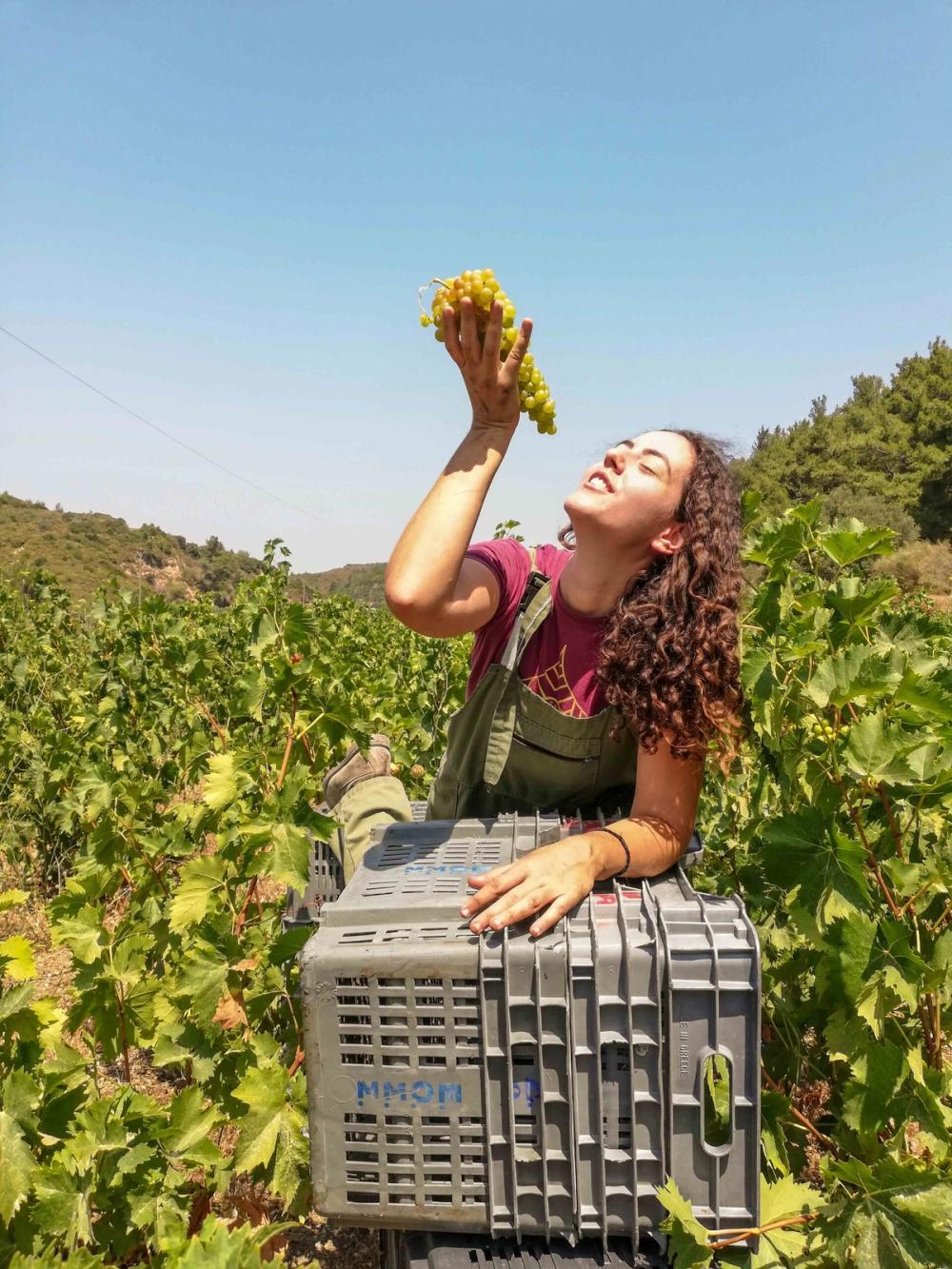
Evmorfia Kostaki says she hopes to play her part as one of the new generation of winemakers in Greece
I enjoy the freedom of doing something different every day. And, of course, I enjoy doing something I’m passionate about, something that allows me to express myself.
In Samos, I work with Muscat a Petits Grains, a variety I truly believe in, as it is a chameleon of a grape, making from sweet to sparkling wines and everything in between. It’s always a welcoming challenge to see what interesting thing I can do next.
What are the most challenging aspects?
Since summer 2020 I’ve been trying to start my own winery, so I had to design the building and oversee the construction, in addition to selecting all equipment. The most difficult part of the whole project, however, has been definitely the bureaucracy in Greece and the time that dealing with it consumes. Thankfully my mother is a veteran in dealing with that, otherwise I probably couldn’t have made it.
Tell us about the wines you make and what sort of styles and approach do you take?
Kostaki Estate, the winery I’m starting, is now under construction, with the first harvest in 2022 – fingers crossed. While all wines are from organic vineyards, I plan to follow no dogma in wine making, intervening whenever it’s necessary to create the best wine possible.
My focus is a single variety with many faces, Muscat Blanc a Petits Grains, but also it’s black-coloured mutation. It’s a really misunderstood variety because of its easy to understand aroma profile, however, there are no limits in the styles of wine you can create. The portfolio is going to include wines that vary from bone dry, with crisp acidity, and just enough aromas, to flirty ancestral method sparkling wine and more “serious” sparkling made with traditional method, but also sweet Samos PDO wines from sun-dried grapes. Depending on how the vintage is, I plan to also create two more surprise styles.
One of the wines I’ll make at Kostaki Estate that excites me the most, is the rosé from the black mutation of the Muscat grape. The clones were selected by the grandfather of my godfather who observed the mutation in his vineyard many years back. Last year I used cuttings from those clones to plant a new vineyard of Black Muscat a Petits Grains.
Why did you apply for the MW Scholarship?
The past two years, I have invested everything I have, in the creation of Kostaki Estate and my Master of Wine studies. Focusing on these two things, requires all my attention, and aside from selling grapes from my vineyards my income is very limited, since getting a full-time job would jeopardise one, perhaps even both of these projects. I applied to the E. & J. Gallo scholarship awarded through the Women of the Vines and Spirits, because it will allow me to keep focusing on the two things that will have the greatest positive impact for my future; finishing my winery and becoming a Master of Wine.
What was your reaction to winning the scholarship?
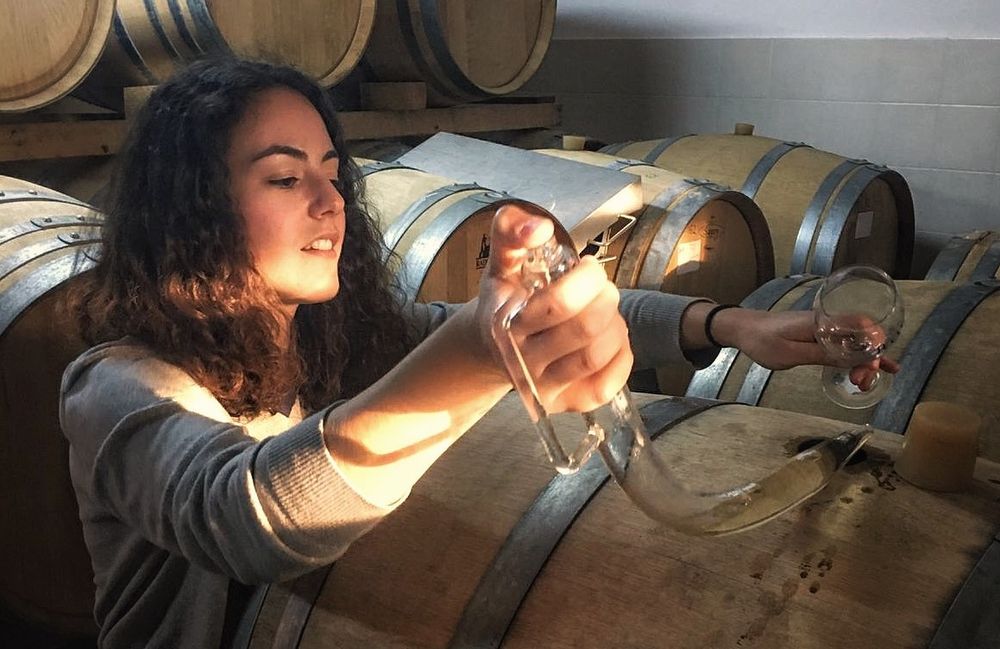
Evmorfia Kostaki says she will use the scholarship to access wines from around the world that you normally can’t find in Greece
I was incredibly surprised. I submitted my application just a few days before the deadline, as I was contemplating not applying at all. This scholarship is open to all female Master of Wine and Master Sommelier students. I really thought I had no chance competing with all these amazing women who have had so impressive careers. By winning the E&J Gallo scholarship, I feel like all my hard work is appreciated and it gave me the emotional and financial push to increase my efforts and achieve my dreams. I am truly honoured to be chosen.
What do you think of the work that Gallo is doing with its educational initiative and support for women?
The wine industry is greatly dominated by men, with a large gender gap not only in the positions women hold, but also on the pay. I believe Gina Gallo has felt inequality herself, and that’s the reason this scholarship exists. It is a great way to promote long-term changes in the wine industry, by helping women move forward. I always believed investing in education is of high importance, and giving women the chance to take control of their lives is incredible.
How will you use the scholarship and what difference will it have on you?
First of all, I will use this scholarship to pay for the Master of Wine student fees, and to purchase wines for training for the Master of Wine practical exam. I live permanently in Samos, and buying wines here is very difficult. There are no wine shops on the island and I have to order everything from mainland Greece, or even abroad. This scholarship may be the reason I succeed as a Master of Wine, since it provides the necessary budget to access all the wines I need to taste for the big exams I’m taking this summer.
What are your ambitions as a winemaker?
Samos is a place where vineyards have been grown for centuries, but there is no culture of making wine. For almost 100 years, the local cooperative was a monopoly, and before that the growers were selling must to the merchants. There have never been vignerons and artisan wineries on the island. By doing the best I can, I hope to create the turning point that will generate a thriving wine scene in Samos and put the island back in the mind of wine lovers around the world.
How have you seen Greek wines develop in recent years – what have been the big changes?
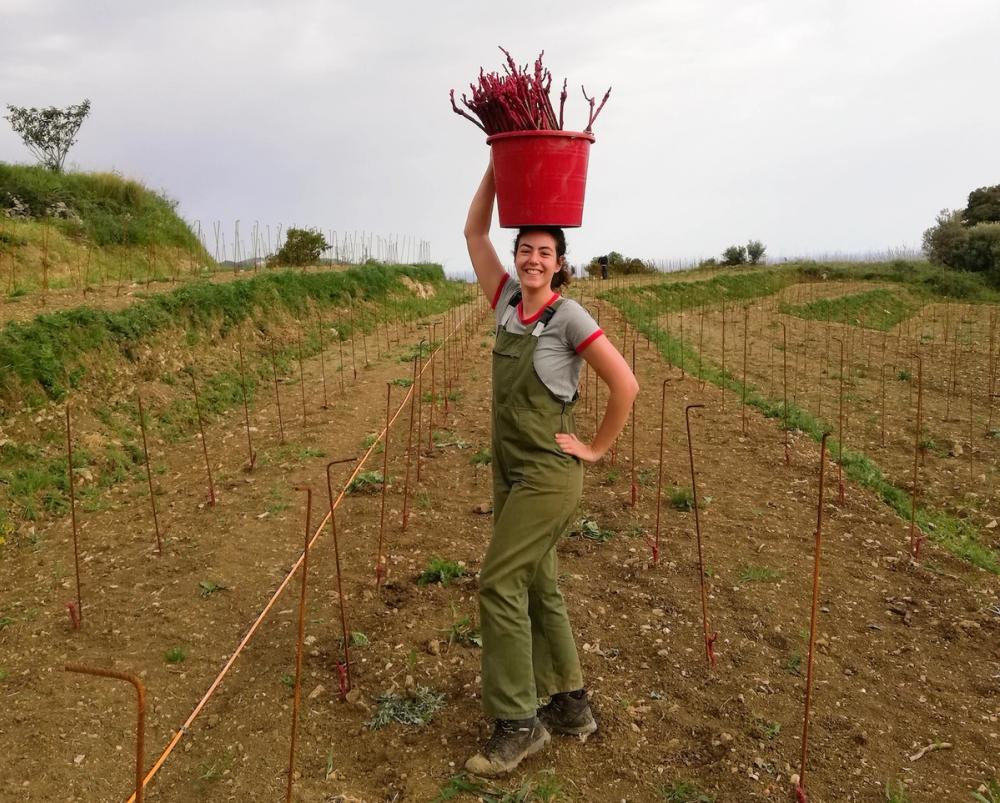
Evmorfia Kostaki says building a strong local market for Greek wine is going to be a key part of its future.
The biggest change in the Greek wine industry is the increasing respect of the Greek people towards Greek wine. Of course, the high quality of Greek wines lately has contributed to that, but the market is also maturing.
Now, producers can experiment, improve the quality further and feel like their efforts are well appreciated by their community. This appreciation is also seen with the shift from international varieties to indigenous ones. When the modern Greek wine industry started merely 50 years ago, all the wineries were planting Cabernet and Chardonnay, because it inspired confidence to the consumers. Now, both winemakers and consumers are embracing the local varieties and showcasing the amazing uniqueness of each region.
What do you hope being an MW might do for your career?
The main reason I am studying to become a Master of Wine, is to gain diverse knowledge and have the opportunity to interact with an amazing community of passionate wine professionals. Becoming a Master of Wine is about understanding of all the parts of the wine industry, and I know that all I learn will be useful as I run my own winery. What’s more, as a Master of Wine I will be heard in a male-dominated wine world, where the opinions and expertise of young women are often disregarded.
Any advice for anyone wanting to apply for the scholarship about what they should do?
It may seem like a cliche, but be yourself. The parts of you that you don’t appreciate might be those that make you win. In my opinion, there is no point in giving a scholarship to a perfect person, as that would not contribute to their improvement. Don’t be afraid to show your flaws, and weaknesses, and explain how the scholarship would help you become better.
Any advice for anyone wanting to do the MW course?
Absolutely go for it. The Master of Wine course is a long and hard journey, but through it you achieve a better understanding not only of the wine world, but also yourself. During your time in the program you train your logic, in addition to gaining knowledge, which is an indispensable skill whether you make is as a Master of Wine or not.
- Nominations for the E. & J. Gallo and Women of the Vine & Spirit “Women Behind the Wine” Educational Fund Scholarships are now open. Click here for more details on how to enter.
